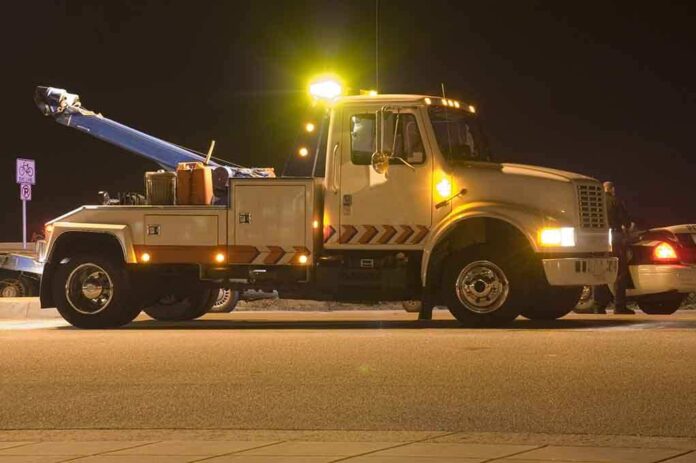
Florida’s recent tragedy highlights a dangerous loophole in our immigration and licensing systems.
Story Snapshot
- An illegal immigrant with a California commercial driver’s license caused a fatal crash in Florida.
- Harjinder Singh, who entered the U.S. illegally, faces vehicular homicide charges.
- The incident has reignited debates on state licensing and federal immigration policies.
- Political tensions rise between Florida and California over this tragedy.
Fatal Crash Highlights Immigration and Licensing Issues
On August 12, 2025, Harjinder Singh, an Indian national who entered the U.S. illegally in 2018, caused a tragic accident on Florida’s Turnpike. Singh attempted an illegal U-turn, resulting in a collision with a minivan and the deaths of three Americans. This incident has brought to light critical concerns about how an undocumented immigrant could obtain a commercial driver’s license (CDL) in California and has sparked a national debate on immigration and public safety.
Florida officials have taken swift action, charging Singh with vehicular homicide and initiating deportation proceedings. The Florida Department of Highway Safety and Motor Vehicles (FLHSMV) and the Florida Highway Patrol are leading the investigation. The tragic loss of life has intensified scrutiny on the processes that allowed Singh to acquire a CDL, igniting discussions on the responsibilities of states versus federal government in enforcing immigration laws and ensuring public safety.
Political Ramifications and State Vs. Federal Tensions
This case has further fueled the political fire between Florida and California, with officials from both states pointing fingers. Florida officials argue that California’s lenient licensing policies for undocumented immigrants undermine national safety standards. The incident has become a rallying point for politicians advocating for stricter immigration enforcement and tighter vetting processes for commercial drivers, especially those with questionable legal status.
While California permits undocumented immigrants to obtain certain driver’s licenses, federal law restricts CDLs to legal residents. This discrepancy has created significant tension and prompted calls for policy reviews. The case has become emblematic of the broader debate over state versus federal authority, highlighting the need for harmonized policies that safeguard public welfare without infringing on states’ rights.
Implications for Public Safety and Regulatory Policies
The implications of this incident extend beyond the immediate tragedy. In the short term, Singh faces prosecution and deportation after serving any potential state sentence. However, the long-term effects could reshape how states and the federal government address licensing and immigration. There are growing calls for more rigorous vetting processes for commercial drivers and enhanced cooperation between state and federal agencies to prevent similar incidents.
The trucking industry, heavily reliant on immigrant labor, may face increased scrutiny and regulatory burdens. This incident has heightened public concern about road safety and the adequacy of current vetting processes. As political debates continue, the focus remains on ensuring that only qualified and legally permitted individuals are entrusted with the responsibility of operating large commercial vehicles on our nation’s roads.
Sources:
ClickOrlando: Semitruck Driver Arrested After Illegal U-turn on Florida Turnpike Causes Fatal Crash
FreightCaviar: Florida Truck Driver Charged with Vehicular Homicide
Fox News: Illegal Immigrant Accused of Killing 3 in Florida Highway Crash
NDTV: Harjinder Singh’s Fatal U-turn Sparks Political Debate












